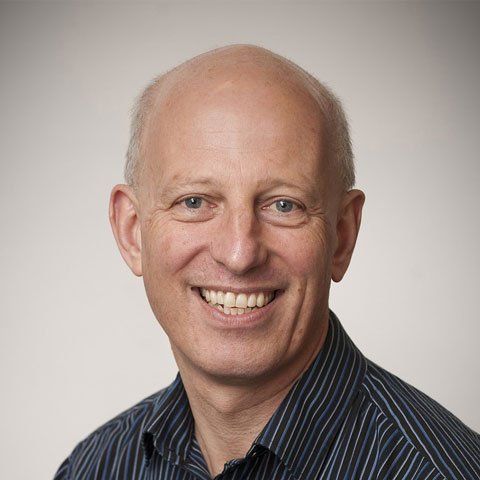AISB Convention 2025 – CALL FOR SYMPOSIA PROPOSALS
priority deadline: 2 August 2024
regular deadline: 30 August 2024
14-16 January 2025, University of the West of England UWE, Bristol, UK
https://aisb.org.uk/aisb-convention-2025-non-members/
The society for the study of Artificial Intelligence and the Simulation of Behaviour (the AISB) annual convention will be held at UWE Bristol, UK on 14-16 January 2025. The convention will follow the same overall structure as previous conventions, namely a set of co-located, parallel symposia, as well as invited and plenary lectures and sessions. We are currently seeking proposals for these symposia. Typical symposia last for one or two days, and can include any type of event of academic benefit: talks, posters, panels, discussions, demonstrations, outreach sessions, etc. Proposals to run symposia are welcomed across all areas of Artificial Intelligence and the Simulation of Behaviour, broadly understood. This includes interdisciplinary topics rooted in the social sciences, arts, and humanities.
Possible themes are listed below (not an exhaustive list):
- Knowledge Representation
- Discourse and Dialogue
- Natural Language Processing
- Computational Intelligence
- Computational Theory of Mind
- Philosophical Foundations of Artificial Intelligence
- Consciousness and Machine Consciousness
- Human and Machine Creativity
- Simulation of Human and Animal Behaviour
- Neural Networks and Machine Learning
- Computational Neuroscience
- Robotics and Robot Ethics
- Epigenetic and Developmental Robotics
- Autonomous Agents and Agent Based Computing
- Enactivism
- Embodied Cognition
- Ecological Cognition
- Embedded [Social] Cognition
- Extended Cognition
- Affective Intelligence and Behaviour
- Embodied Audio-Visual Interaction
- Style in Text; Textual Forensics
- Robotics, Perception and Art
- Live Algorithms
- Cultural, Social and Media Theory and Computing
- Sensorimotor Theory
- Cybernetics and Human Knowing
- Sensory Substitution
- Distributed Thinking
- Robot Language and Communication
- Proposing a Symposium
Symposia Organisation
Each symposium is organised by its own organising committee. The committee proposes the symposium, defines the area(s) and structure for it, issues calls for abstracts/papers etc., manages the process of selecting submitted papers for inclusion, and compiles an electronic file for inclusion in the convention proceedings. Organisers are welcome and encouraged to invite keynote speakers to their symposia, but they are also encouraged to seek external funding in order to pay keynote speakers’ registration fees and other costs. Symposium organisers and all speakers will be expected to pay registration fees.
Proposers are welcome to submit, or be involved with more than one proposal.
Proposers need not already be members of the AISB (though you will be expected to join the AISB if your symposium proposal is accepted).
Symposium proposals will be handled in two phases: For early approval, apply by the priority deadline. This will ensure the symposium is hosted at AISB 2025 if it meets the basic criteria. Proposals received after the priority deadline but before the standard deadline will undergo the same process, but acceptance is subject to conference venue logistics, such as room availability.
Priority deadline for symposium proposals: 2 August 2024
Notification of acceptance (first round): 9 August 2024
Standard deadline for symposium proposals: 30 August 2024
Notification of acceptance (second round): 6 September 2024
Submissions should consist of the following:
- A title
- A 300-1000 word description of the scope of the symposium, and its relevance to the convention along with the nature of the academic events (talks, posters, panels, demonstrations, etc.)
- Whether the symposium is intended as a sequel to a symposium at a previous AISB conference.
- An indication of whether submissions will be by abstract, extended abstract or full paper.
- Your preferences about the intended length of the symposium as a number of days (preferably one or two days, but anything from half a day to three days), together with a brief justification.
- A description (up to 500 words) of any experience you have in organisation of academic research meetings (please note that it is not a requirement that you have such experience).
- Names and affiliations of any invited speakers that you may have in mind for the symposium.
- Your names and full contact details, together with, if possible, names and workplaces of the members of a preliminary, partial programme committee.
Please email your completed proposal to symposia-proposals@aisb.org.uk
Venue
The University of the West of England (UWE Bristol) is thrilled to welcome you to our vibrant and dynamic campus, known for its cutting-edge facilities and strong connections with industry. We hope you enjoy your stay and take advantage of all that UWE Bristol and the beautiful city of Bristol have to offer. UWE Bristol’s main campus is located 2 miles from the M4 and M5 motorways and has good links with Bristol Parkway train station and city centre buses.



 The
The 